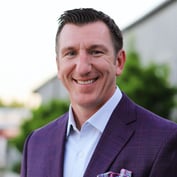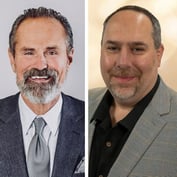Every business impacts five constituencies: its clients, stakeholders, vendors, employees and community. To excel, advisors must consider how their decisions and actions affect their relationships with these groups. Each constituency can be a powerful advocate for their firm—or a powerful detractor. Each interaction
helps define the firm’s brand and priorities. The resulting perceptions shape the image of the specific firm as well as the reputation of the industry in general.
Consider the events of recent years. I recall a conversation with the wife of a managing director at Lehman Brothers. She pointed out that among the unfortunate casualties of the firm’s collapse were the millions of dollars in charitable contributions that were lost with it. Included in those millions was a special initiative to help young inner city women who were without resources go to college. Now Lehman’s legacy is not about the great measures they took to help others, but the devastation they wrought on thousands of employees and beneficiaries left floundering in the wake of their failure.
There is a common and pervasive misperception that this profession solely comprises rigid Ayn Rand acolytes. Rand’s free market philosophy, as captured in her novel “Atlas Shrugged,” promoted the idea of individuals living only for their self-interest and rejecting altruism.
In reality, financial services firms large and small make a positive impact in their communities that often goes unrecognized. Part of this desire to remain “low-key” stems from the current climate; these days, it seems any connection to this business incurs the wrath of the misinformed. That’s not to say the industry hasn’t brought reputational problems upon itself, but it is unfair to declare that a relatively small group of miscreants represent the greater financial services population or that the pursuit of profits is the single-minded objective of all financial professionals.
Not only have clients developed wariness and suspicion of financial services firms, potential new talent has also been shying away from the industry in part due to the reputational taint. Young career seekers are motivated by not only the financial rewards and intellectual challenge of a job, but the desire to use their talents, time and money to benefit others. If they knew more about the exemplary ethical and moral standards and practices of many financial professionals, they might have a different view of this industry as a career option.
Now as much as ever advisors can achieve personal fulfillment in the financial advisory business by profoundly improving the lives of clients and contributing to the community in a meaningful way. How compelling of a proposition is that to people you want to work with or employ?
These are important times for Wall Street and the thousands of Main Street financial services organizations that have been ridiculed and excoriated for making money while many are losing homes and jobs. What is often overlooked in the editorials, handcrafted posters and graffiti is the positive impact that this business has on the less fortunate, done in a way that is the choice of the giver and not the mandate of the governor. I’m not talking about the “redistribution of wealth,” but the actual and long-standing tradition of giving back by a profession that engenders and manages wealth, but still has a noble nature.
A great example of this community spirit in financial services is the Foundation for Financial Planning (www.foundation-finplan.org). In October, the Foundation crossed a milestone in making their 100th grant to help organizations provide financial planning to people who can’t afford it and teach financial life skills to those who never learned them. Beneficiaries include military families, the recently unemployed, homeless people who are deep in debt and young disadvantaged adults who are just trying to find their way.








 December 28, 2011 at 07:00 PM
December 28, 2011 at 07:00 PM










